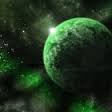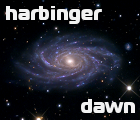|
How difficult would it be to implement procedural life?
|
|
| JJake101 | Date: Wednesday, 15.07.2015, 19:54 | Message # 1 |
|
Observer
Group: Newbies
 United Kingdom
United Kingdom
Messages: 7
Status: Offline
| Similar to No Mans Sky for example.
From a development standpoint, how difficult it actually be to pull of something like this in SE?
Edited by JJake101 - Wednesday, 15.07.2015, 20:00 |
| |
| |
| DoctorOfSpace | Date: Thursday, 16.07.2015, 05:52 | Message # 2 |
 Galaxy Architect
Group: Global Moderators
 Pirate
Pirate
Messages: 3600
Status: Offline
| Very difficult.
Intel Core i7-5820K 4.2GHz 6-Core Processor
G.Skill Ripjaws V Series 32GB (4 x 8GB) DDR4-2400 Memory
EVGA GTX 980 Ti SC 6GB
|
| |
| |
| spacer | Date: Thursday, 16.07.2015, 06:49 | Message # 3 |
 Star Engineer
Group: Users
 Israel
Israel
Messages: 1258
Status: Offline
| the team of NMS worked on the game for years. now...think that they are team of 13.
vladimir is 1 guy. so not just very diffcult but also its will take long long time
"we began as wanderers, and we are wanderers still"
-carl sagan
-space engine photographer
|
| |
| |
| Inarius | Date: Thursday, 16.07.2015, 08:25 | Message # 4 |
 Explorer
Group: Local Moderators
 France
France
Messages: 237
Status: Offline
| Very hard. Probably the hardest things to do, anyway.
What he can eventually, and perhaps, is adding procedural "traces" of life (vegetation sounds more easy), but making a real ecosystem it's like if he added real tidal or real meteorology, according to mass of air, liquid sources, moutains and gravity.
It's something which would kill your computer, (NMS graphics are not near those of SE, and, anyway, you haven't seen the game yet), and kill Vladimir in the process, too 
|
| |
| |
| JJake101 | Date: Thursday, 16.07.2015, 13:27 | Message # 5 |
|
Observer
Group: Newbies
 United Kingdom
United Kingdom
Messages: 7
Status: Offline
| Quote JJake101 (  ) and kill Vladimir in the process
I did a bit of quick maths:
The average software developer salary in Russia = RUB 878,600 (£9,927.27)
So if we were going for a NMS sized team we'd need 13 people working on this full time that would mean that we'd need RUB 10,543,200 (£129,054.51)+how ever much office space and workstations cost (and that cost is just for 1 year :o)
As a side note, I remember a while ago that an indiegogo campaign was talked about but as far as I know it hasn't happened?
Edited by JJake101 - Thursday, 16.07.2015, 13:40 |
| |
| |
| Inarius | Date: Thursday, 16.07.2015, 15:01 | Message # 6 |
 Explorer
Group: Local Moderators
 France
France
Messages: 237
Status: Offline
| Yeah, he could also go on patreon to receive some fixed funding (if it's allowed in Russia)
you can considering that environned cost (workstation, electricity, computers, management, accounting, etc.) represents 60 to 80% of the salary cost (It's what UE gives for project financement), so your 129k£ will more or less be 200k£ 
It's really doable, with a kickstarter and a mass campaign communication (but here again, who will do this type of communication, and with which money ?), but most time IT and science people are not the best at communication...
Anyway, there are for now more chance that Space Engineer receive 200k£ per year for this project that we discover a advanced civilization on Charon 
|
| |
| |
| JJake101 | Date: Thursday, 16.07.2015, 17:36 | Message # 7 |
|
Observer
Group: Newbies
 United Kingdom
United Kingdom
Messages: 7
Status: Offline
| Quote Inarius (  ) It's really doable, with a kickstarter and a mass campaign communication (but here again, who will do this type of communication, and with which money ?), but most time IT and science people are not the best at communication...
I just looked at the viewing numbers for Scott Manley's latest Space Engine video from a week ago.
184,114 views
If every one of those people donated £5... that'd be £920,570 :O (more than enough to fund this thing with a decent sized dev team for 3 years)
I think what would need to be done is to cooperate with larger science-focused YouTube channels to regularly put out SE related content and a decent amount of community interaction to keep people interested (weekly dev blogs, Star Citizen-esque open development?)
Edited by JJake101 - Thursday, 16.07.2015, 18:00 |
| |
| |
| DiscovererOfWorlds | Date: Wednesday, 22.07.2015, 11:24 | Message # 8 |
 Space Pilot
Group: Users
 Italy
Italy
Messages: 120
Status: Offline
| But why Vladimir has not a team of developers? if he had a team, certainly the development of Space Engine would be much faster.
the universe is made to be explored, but no one will ever visit it all
|
| |
| |
| HarbingerDawn | Date: Wednesday, 22.07.2015, 12:07 | Message # 9 |
 Cosmic Curator
Group: Administrators
 United States
United States
Messages: 8717
Status: Offline
| Quote DiscovererOfWorlds (  ) But why Vladimir has not a team of developers?
How will he pay them? Donations only give him enough money to pay for himself, he has no money to hire other people to help him.
All forum users, please read this!
My SE mods and addons
Phenom II X6 1090T 3.2 GHz, 16 GB DDR3 RAM, GTX 970 3584 MB VRAM
|
| |
| |
| Idgelios | Date: Wednesday, 22.07.2015, 16:51 | Message # 10 |
 Astronaut
Group: Users
 United States
United States
Messages: 77
Status: Offline
| Depends on the life really. Space Engine already has procedural life if you count the alien grass that is the predominant form of life outside earth. Black grass, green grass, purple and yellow grass being the most common. Not sure if other grass colors appear, maybe red grass might show up on some planets. But hey, some life is better than no life!
I think the easiest life to implement might be stuff like trees which probably will come much sooner than any animals. Simulating ecosystems could probably be done "crudely", but even if the animal AI is basic as AI gets there comes the question of how to make life in the universal procedurally generate in a way logical to the world they live on? So many factors dictate on earth how life evolved like gravity, atmosphere, regional geography, other life, how often mass extinctions happen, the meteorological make up of a region, the temperature.... I'd say that life probably shouldn't even have steps towards implementation until planets can simulate weather systems and show some degree of dynamics in seasonal changes and geological activity.
Even with just the grass there's some instances where the life simulation's questionable. Consider how grass in many cases will completely cover a desert planet despite desert planets being dry. (not to mention aesthetically a desert planet with a few tufts and patches of grass from orbit looks cooler than a bunch of purple balls). Climate factors like humidity I don't think have yet to be implemented and it shows. The alien grass I believe to pretty much be a place holder more than anything else.
I'd rather wait for space engineer to make planets more realistic before having more complex life and simulate the topography of subglacial oceans first (along with of course, adding more variables, features and traits to planets to further increase diversity of worlds-I am happy to see space engineer's going that route if patch 5 is any indicator). Geology and Climate play such massively important roles in how life develops that I can't see life being generated logically or rationally.
Edited by Idgelios - Wednesday, 22.07.2015, 16:54 |
| |
| |
| DiscovererOfWorlds | Date: Wednesday, 22.07.2015, 18:34 | Message # 11 |
 Space Pilot
Group: Users
 Italy
Italy
Messages: 120
Status: Offline
| Quote HarbingerDawn (  ) he has no money
the universe is made to be explored, but no one will ever visit it all
|
| |
| |
| Conquesti | Date: Wednesday, 22.07.2015, 23:15 | Message # 12 |
|
Astronaut
Group: Users
 Spain
Spain
Messages: 53
Status: Offline
| There could be life prodedural data in a window to analyze and map areas of ecosystems color, I said this in a post and forgot.
I would also like to see rocks for analysis of minerals, etc.
What sense does space exploration if all the planets are empty?
It´s very beautiful sunsets and moons, but ... Is that all?
Edited by Conquesti - Wednesday, 22.07.2015, 23:22 |
| |
| |
| Przeszczep | Date: Thursday, 23.07.2015, 21:11 | Message # 13 |
|
Space Tourist
Group: Users
 Poland
Poland
Messages: 22
Status: Offline
| Note that I'm talking only about vegetation because animals are probably an one order of magnitude harder to simulate.
Everything depends on the scale and complexity. Keep in mind that SE is "real" time simulator and many things would have to be simplified.
Some examples:
1. Everything generated
- species evolution
- biological processes
- evironments
- plants distribution
- specimens structure, geometry and looks
- interactions between plants and evironment
- seasons
- day-night cycle
- TIME based - you can speed up time and see specimens dying, new ones growing etc.
+ more
IMPOSSIBLE!!!
Side note: many of those subjects mentioned above are worth a doctorate degree or possibly more...
2. Realistic
- species generation based on random seed, environment data and pre-defined parameters (we don't want a plant that is 10m high and has one 3cm long black leaf)
- transition from parameters to L-systems - probably the biggest problem
- distribution of specimens
- generation of plants structure, geometry, assignment/generation of materials
We would have to define possible organs shapes because otherwise we would be forced to simulate biological processess which leads us to evolution and further into very, very dark alley.
3. Whatever, we just want life
- throw around some plants glued together from random organs.
CPU: Intel Core i5 4690K | GPU: MSI GeForce GTX 970 | RAM: 8 GB
|
| |
| |
| Rattus | Date: Saturday, 25.07.2015, 12:36 | Message # 14 |
 Observer
Group: Newbies
 Russian Federation
Russian Federation
Messages: 6
Status: Offline
| Hello, guys. My name is Sergey Andrewschenko, i'm a molecular microbiologist and a research fellow of a small Russian Academy of Sciences institute. Some months ago I have volunteered to create an "optimistic-rigorous" concept of biogenesis for SE.
And I have a bad news. Complexiety of Procedural Life - is a half of problem for a scientifically rigorous space sim as SE is.
Main problem - is our absolute ignorance about other life forms, except Earth-like. And even probability of Earth-like life is fully unknown too. We can only make either more otimistic or more pessimistic vague models by our knowledges about physical, chemical and structural limitations of Nature. And theese limits are more pessimistic, than majority of users are suppose.
Briefly, there are two academic sources which sets bounds to our fantasies about the extraterrestial life:
From "Optimistic" side: NRC Committee report "The Limits of Organic Life in Planetary Systems"
From "Pessimistic" side: "Logic of Chance" - book written by NCBI senior investigator Eugene Koonin.
According to our investigations of known limits and data on exobiology, complex macroscopic multicellular life must be extremely rare in the observable universe. If a rate of such life in SE will be about one per a half of a trillion (it is a quite optimistic estimation!) star systems - you will never discover it most likely to the end of your life. Therefore modelling of it becomes unnecessary.
Only macroscopic lifeforms that SE can give you in the foreseeable future "by default" - is microbial mats, mold and lichen.
In most optimistic variant - a rare planets with algae, fungi and (very rare!) ediacara "worms", cnidaria and ctenophora.
Vendian animals has a simple but very different morphology and a primitive behaviour. Theese facts make them optimal for procedural generation, available for present capabilities of Project.
P.S. Besides, a very good (from the point of view of visibility and strictness) procedural generator of motile microscopic life (like protozoans) is already exists: Gene Pool by Jeffrey Ventrella
Edited by Rattus - Saturday, 25.07.2015, 13:27 |
| |
| |
| FastFourierTransform | Date: Saturday, 25.07.2015, 17:36 | Message # 15 |
 Pioneer
Group: Local Moderators
 Spain
Spain
Messages: 542
Status: Offline
| Quote Rattus (  ) And I have a bad news. Complexiety of Procedural Life - is a half of problem for a scientifically rigorous space sim as SE is.
I always agree completely with that point of view. I always wondered if extraterrestrial life dosen't exists, I mean, why not? The Universe is inmense, maybe it has around 10^24 worlds, but what if chances for abiogenesis are 10^-24? Saying that the Universe has big numbers dosen't mean that everything that is possible has happend more than one or two times.
Quote Rattus (  ) i'm a molecular microbiologist and a research fellow of a small Russian Academy of Sciences institute. Some months ago I have volunteered to create an "optimistic-rigorous" concept of biogenesis for SE.
That's awesome. Glad you are doing this. I think we all going to apreciate your ideas 
Quote Rattus (  ) If a rate of such life in SE will be about one per a half of a trillion (it is a quite optimistic estimation!) star systems - you will never discover it most likely to the end of your life.
If the estimates for complex life gives you those small chances it dosen't necessarily rules out the possibility of having it for exploration on SE. Obviously if we explore randomly we would have to play for a lifetime to find something, but if some filters allow for a rapid search or some kind of evidence can be gathered while exploring to point out a system where there could probably be complex life, then it would be easier to find. And at least the SE community would find someone on day (because you are not alone exploring). But agree that is not sufficient to develope a so complex simulation.
My opinion in all this issue is that we are embeded in classical geocentric and, many times, antropomorphic view of exobiology. We search for liquid water almost as if finding gasoline in another world meant the probable existence of cars. Life could be so different from what we think that predicting and simulating not only the geometric structure but the behaviour and the correspondence with the enviroment for several functions of those organisms, is in my opinion absolutely imposible unless we abbandon the rigour and abstraction that characterizes the field, and start making totally known creatures (with eyes, head, two arms, maybe some fungus, or a worm) infected one more time by this geocentric bias.
Why not life that dosen't need water, or not carbon based life-forms? How to predict their aspect with simple calculations?
Why not a life being that is only a pattern of chemical reactions over thousands of kilometers on a planet, like what this video could suggest:
I mean, not cactuses lightning up but something more abstract like the cactuses as cellular parts of a gigantic non-organic organism that in reality is a pure emergence of the properties that mimics the reproduction, matabolism, growth, adaptation and response to stimuli, as for example in the Game of Life (a light pattern that is a living creature made by millions of bulb-cells):
.
And why not other kind of life that completely make us ignoring their life-form quality because of their abstract configuration. What about for example life that dosen't live on the surface of a planet but instead swallows gas in nebulaes.
Why not life like this hypotesized by Tsytovich that could be dust grain and plasma based (and looks more probable than our own Earthly life-forms). Computer models showed that, when the dust became charged, the particles could self-organize into microscopic helical structures capable of replicating themselves, interacting with other neighboring structures, and evolving into more stable forms
Maybe is SE is going to simulate life in a realistic way (with the extremely poor knowledge we have about life in the Universe) we need to represent this likely creatures and pretend to understand with simple reasonings how they would behave.
I like Fred Hoyle's science fiction idea of an alien gaseous intelligent creature that comes to visit the solar system and expresses surprise that intelligent life is capable of forming on planets, as if they where extreme places to devolope life for been so close to a thermonuclear fusion reactor as a star.
We have to think more about other possibilities and not only the life-forms that we are going to see in no-man's sky (all terrestrials are mammal like to mention the idea).
|
| |
| |